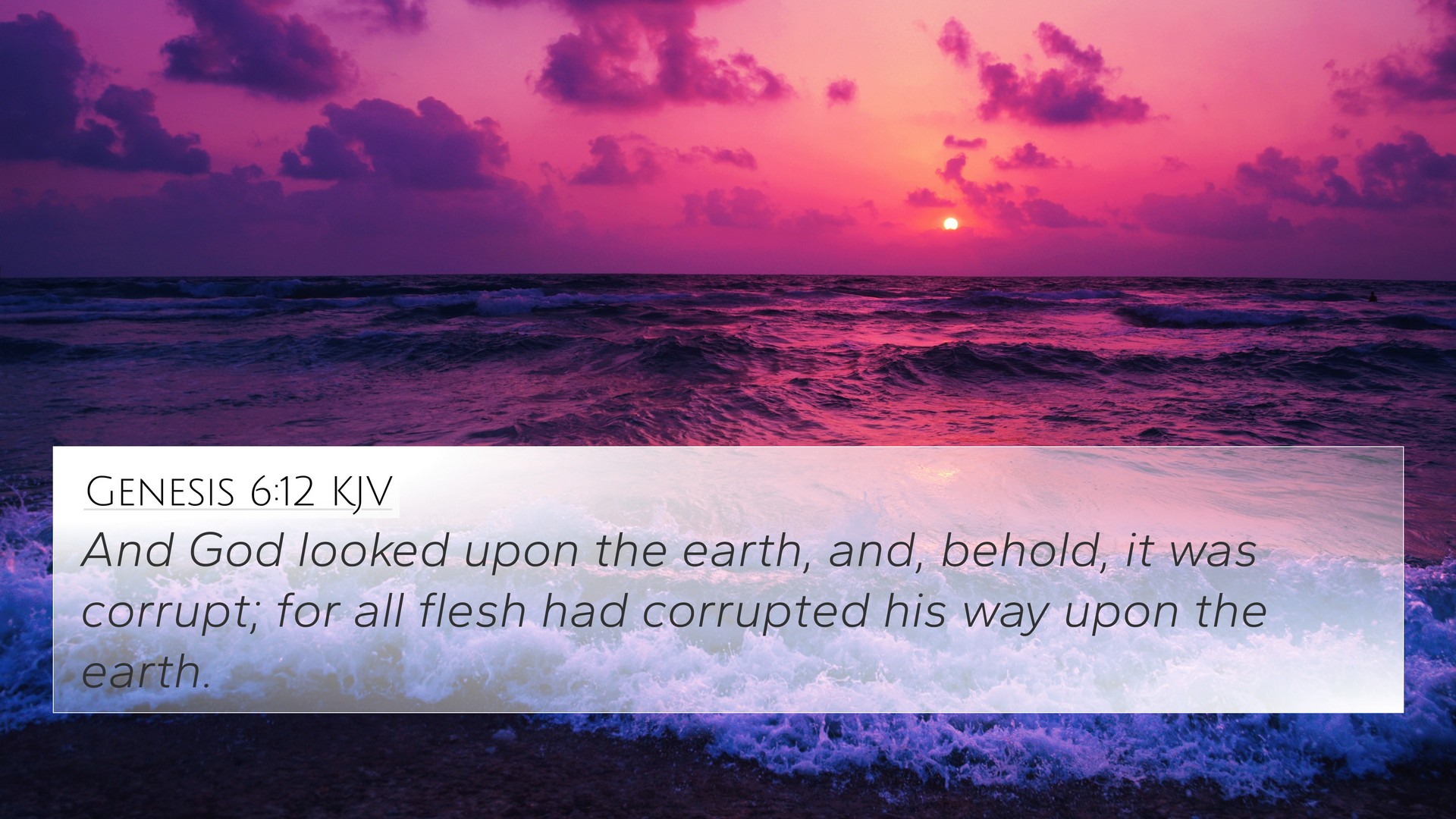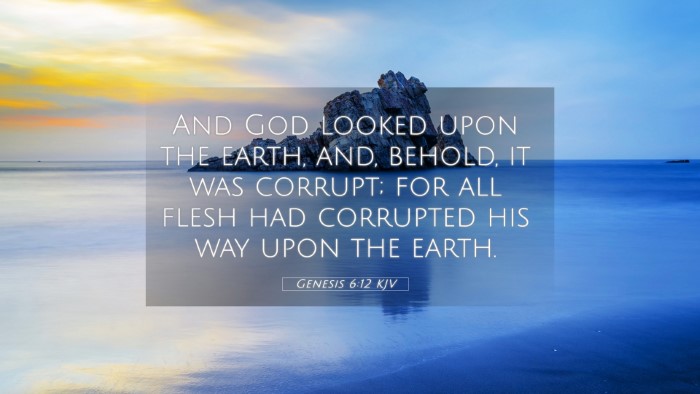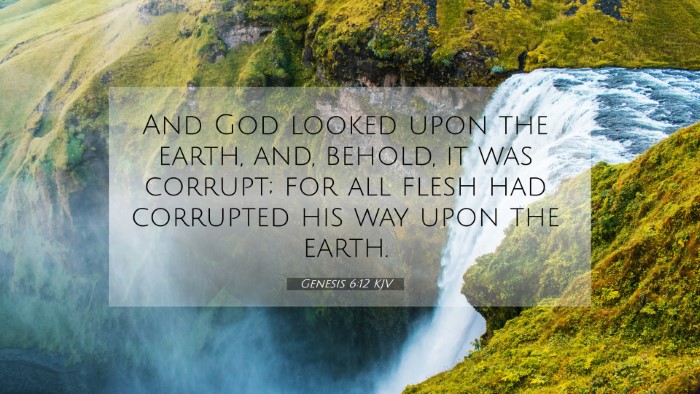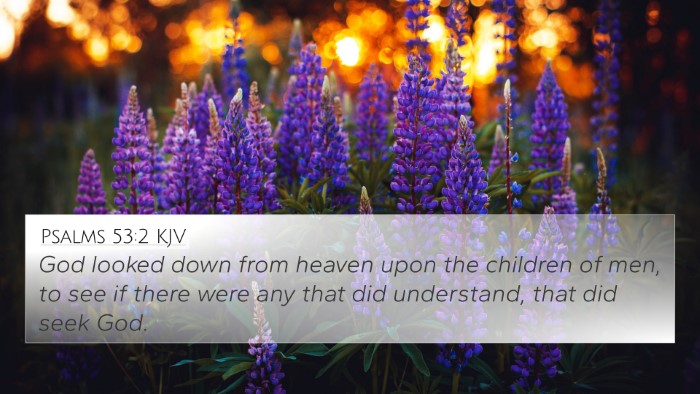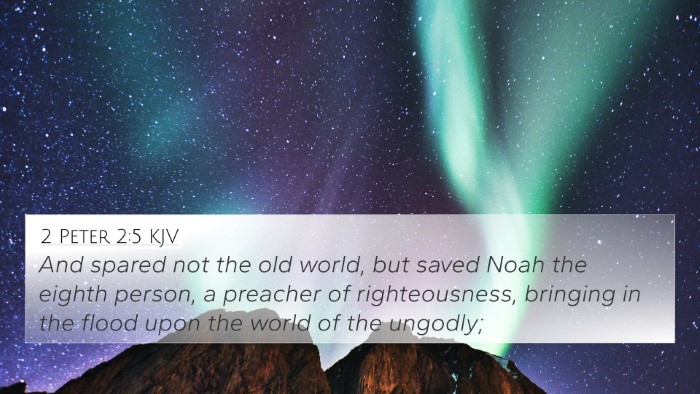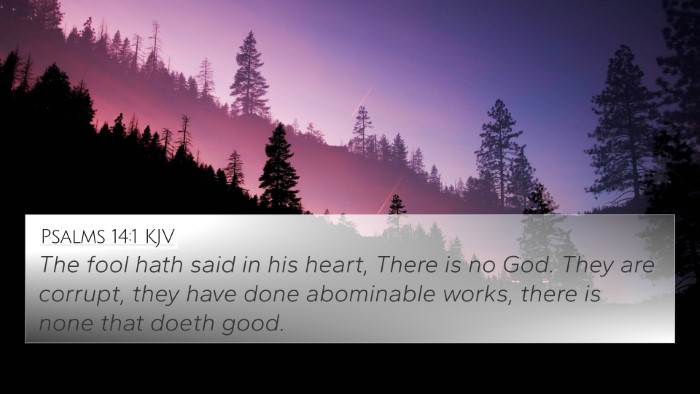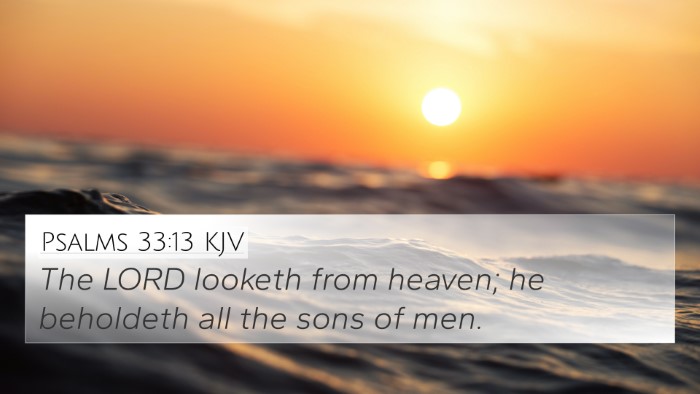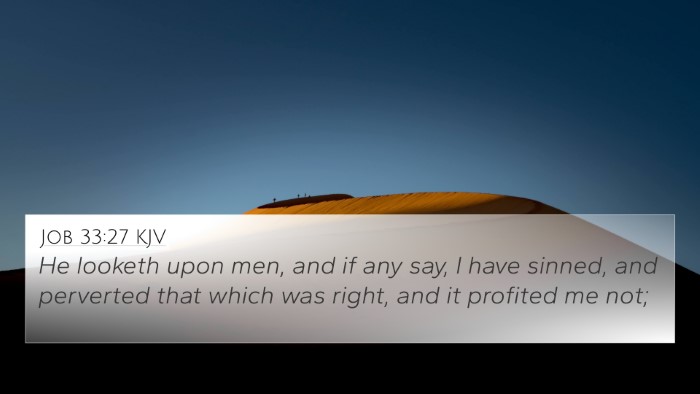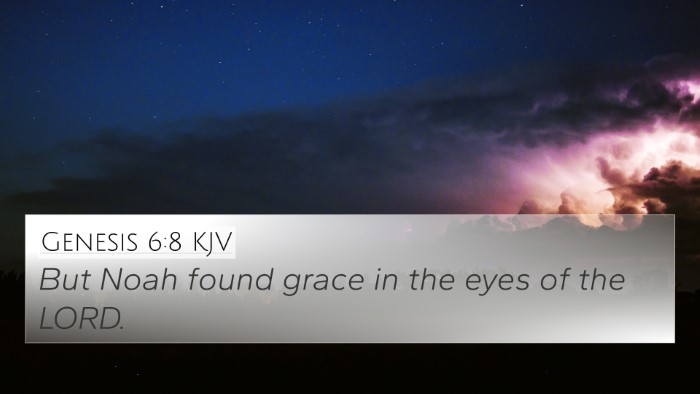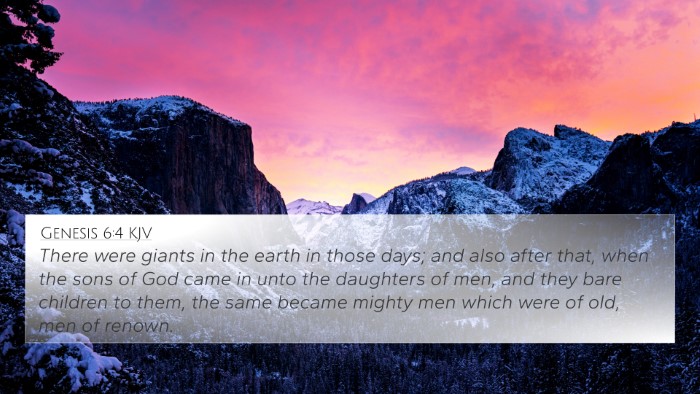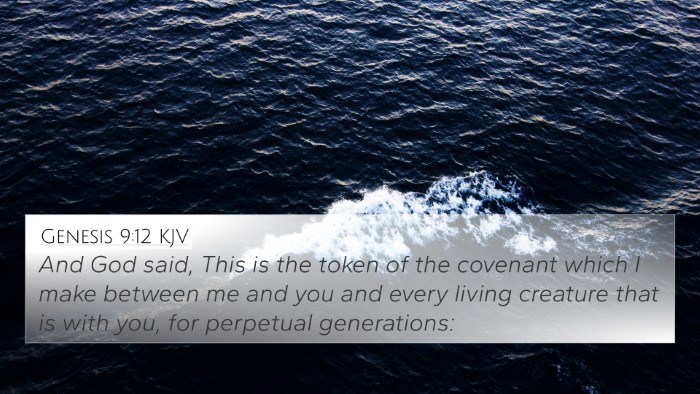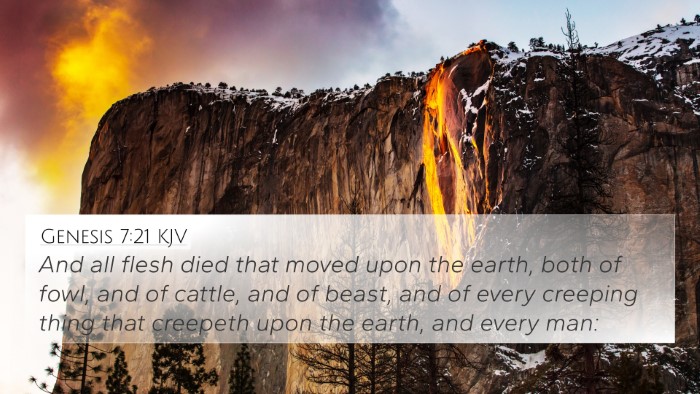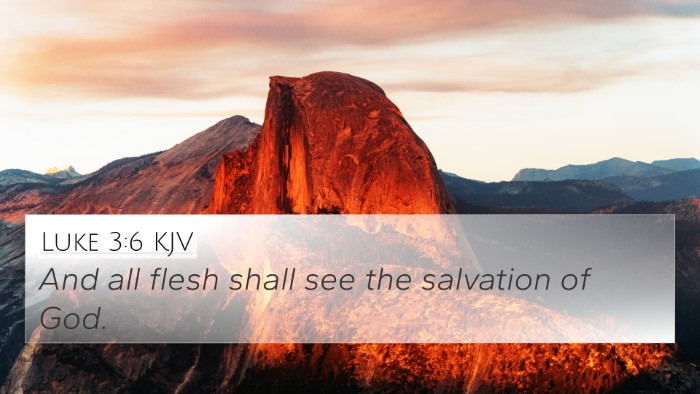Understanding Genesis 6:12
Verse: Genesis 6:12 - "And God looked upon the earth, and, behold, it was corrupt; for all flesh had corrupted his way upon the earth."
This verse serves as a solemn reflection on the moral decay of humanity prior to the Great Flood. It highlights the divine observation of human actions, emphasizing both God's awareness and sorrow regarding the state of creation. The analysis of this verse will delve into its theological implications and connections with other scriptures.
Commentary Insights
This scripture has been interpreted through various lenses by public domain commentators, revealing deep insights into its meaning.
1. Matthew Henry's Commentary
According to Henry, God's observation signifies a profound discontentment with the state of the world. The term "corrupt" implies a complete moral degradation among humans.
- This scripture indicates that human corruption was not merely superficial but penetrated to the core of their being.
- Henry emphasizes that the corruption involved a turning away from God’s ways, leading to grave implications for humanity’s future.
2. Albert Barnes' Notes on the Bible
Barnes elaborates on the phrase "all flesh had corrupted his way," noting that it includes not only physical actions but also the spiritual and moral dimensions of life.
- He highlights the universality of sin—every individual was implicated in the corruption.
- Barnes urges readers to heed the warning inherent in this observation, as it reflects the potential consequences of unchecked sin.
3. Adam Clarke's Commentary
Clarke underscores the historical ramifications of this verse, connecting it to the impending judgment of the Flood.
- He points out that the observation by God serves as a narrative pivot, setting the stage for divine intervention.
- Clarke also notes that this acknowledgment of sin by God affirms His justice and omniscience.
Thematic Connections
Genesis 6:12 can be linked to several significant themes throughout the Bible, which reflect God's continuous engagement with human behavior and morality.
Comparative Bible Verse Analysis
- Romans 3:23: "For all have sinned, and come short of the glory of God." This verse reflects the universality of sin prevalent during Noah's time.
- Jeremiah 17:9: "The heart is deceitful above all things, and desperately wicked: who can know it?" This provides a backdrop for understanding human corruption.
- Matthew 24:37-39: "But as the days of Noah were, so shall also the coming of the Son of man be." This comparison underscores the repetitive nature of human moral failure.
- 2 Peter 2:5: "And spared not the old world, but saved Noah the eighth person, a preacher of righteousness, bringing in the flood upon the world of the ungodly." It highlights God’s judgment against sin.
- Proverbs 14:12: "There is a way which seemeth right unto a man, but the end thereof are the ways of death." This captures the futility of corrupt paths.
- Genesis 1:31: "And God saw every thing that he had made, and, behold, it was very good." This contrasts the original creation’s goodness with the current state of corruption.
- Isaiah 5:20: "Woe unto them that call evil good, and good evil..." This theme echoes the moral inversion observed in Noah's time.
Tools for Bible Cross-Referencing
Understanding Genesis 6:12 becomes significantly insightful when utilizing various tools and methods for Bible cross-referencing:
- Bible Concordance: A valuable resource for locating related scriptures and deeper meanings.
- Bible Cross-reference Guide: Helps in identifying direct connections and parallels between verses.
- Cross-reference Bible Study: This method encourages an exploration of linked themes across different books.
Importance of Inter-Biblical Dialogue
Genesis 6:12 is not only a reflection of its immediate narrative but also resonates throughout the Bible, fostering dialogue between the Old and New Testaments.
By understanding the depths of Genesis 6:12, we explore larger themes of sin, judgment, and redemption that recur throughout Biblical scripture.
Conclusion
Genesis 6:12 encapsulates critical insights about the nature of humanity and God's response to sin. Through the examination of commentaries and connecting it to broader biblical narratives, one can appreciate the solemn truths that this verse expresses. It serves as a pivotal reminder of the timelessness of scriptural truths.
